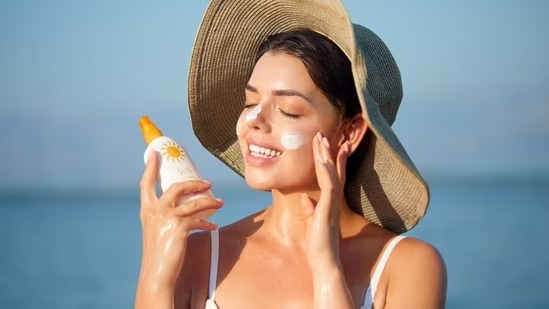Dr. Kiran Sethi emphasizes that sunscreen is a vital daily skincare essential, protecting against UVA/UVB damage, premature aging, and skin cancer. She offers practical advice on selecting the right SPF, understanding chemical vs mineral sunscreens, and proper, consistent application for maximum effectiveness.
Sunscreen is more than just a summer accessory or a vacation essential—it’s a lifelong investment in your skin’s health, warns Dr. Kiran Sethi, a leading dermatologist based in New Delhi. In her recent post, Dr. Sethi stresses that daily sun protection is crucial for preventing long-term damage such as premature aging, wrinkles, pigmentation, sunspots, and skin cancers, which often stem from unprotected UV exposure even on cloudy days.
Why Sunscreen is a Lifelong Investment
“The sun exposure you receive during your teenage years can affect your skin decades later,” Dr. Sethi explains. UVA rays contribute to deep skin damage and aging, while UVB rays cause sunburn and DNA damage. Broad-spectrum sunscreens that protect against both UVA and UVB rays are essential.
Choosing the Right Sunscreen
Dr. Sethi advises selecting a sunscreen with at least SPF 30, which blocks about 97% of UVB rays, while SPF 50 can block up to 98%, though the difference may be less obvious. Modern chemical sunscreens, especially from trusted Korean and European brands, are generally safe and effective, alongside physical (mineral) sunscreens containing zinc oxide or titanium dioxide that sit on the skin and reflect UV rays, ideal for sensitive skin.
Proper Application Techniques
Proper application is key to effectiveness. Use approximately 1 teaspoon for the face and neck, and about an ounce (the size of a shot glass) for the body. Sunscreen should be applied 15-30 minutes before sun exposure and reapplied every two hours, especially after swimming or sweating. It’s important to cover all exposed areas, including ears, neck, tops of feet, and scalp or use protective hats for hair thinning.
Debunking Myths and Staying Consistent
Dr. Sethi cautions against relying solely on makeup with SPF as it often lacks sufficient coverage. Also, remember that sunscreen isn’t "waterproof"—water-resistant products require reapplication. UV rays reflect off surfaces like sand and snow, making protection necessary even when indoors near windows or on dull days.
Using sunscreen daily is a proactive way to safeguard your skin’s appearance and health, yielding lifelong benefits against visible and invisible sun damage.
Key Highlights
-
Sunscreen protects against UVA (aging) and UVB (burning) rays; broad-spectrum is a must.
-
SPF 30 is sufficient for daily use; higher SPF adds marginal extra protection.
-
Chemical vs Mineral sunscreens: choose based on skin type and lifestyle needs.
-
Apply enough sunscreen, cover all exposed skin, and reapply every 2 hours or after water exposure.
-
Sunscreen is a non-negotiable daily skincare investment to prevent long-term skin damage.
Sources: Hindustan Times, American Academy of Dermatology, Dr. Kiran Sethi Instagram, Doctor Rogers blog, Skin Cancer Foundation

